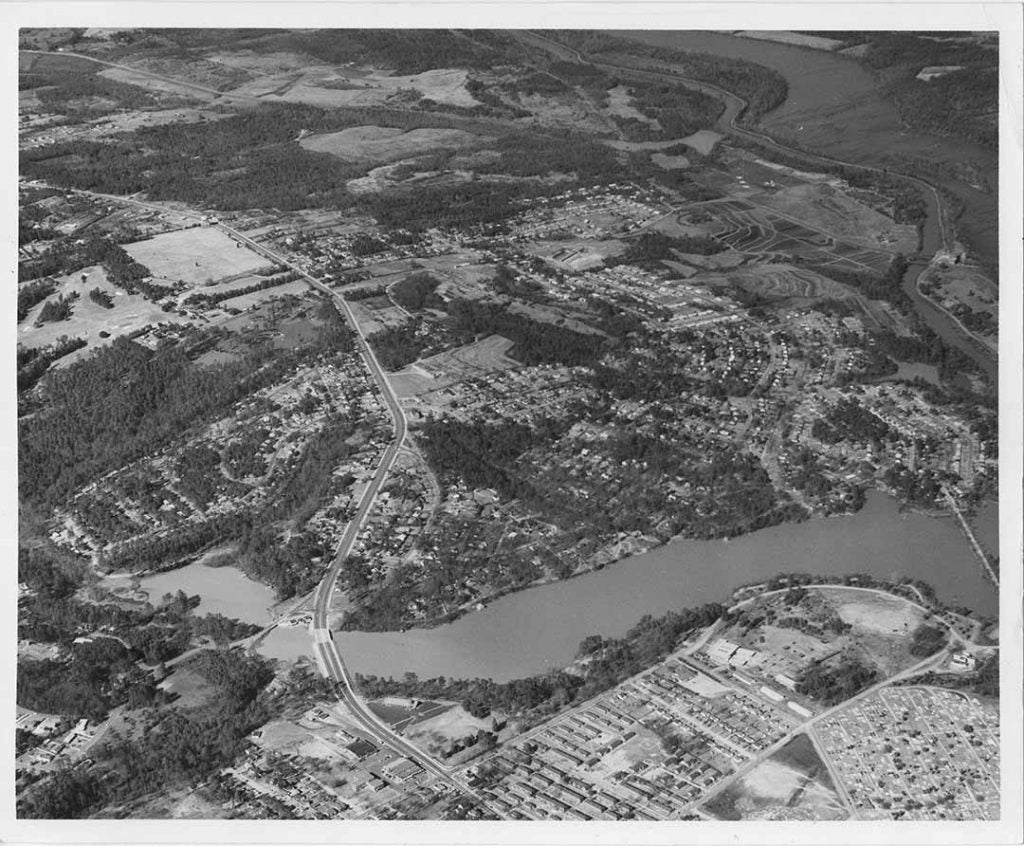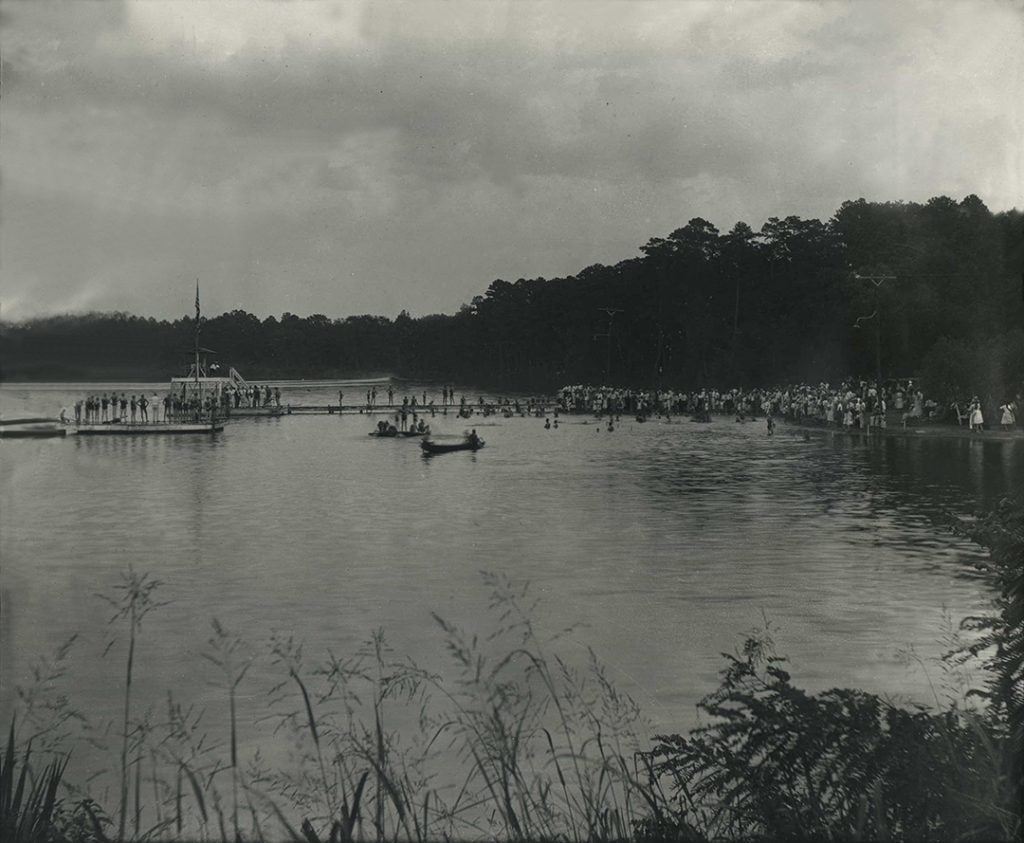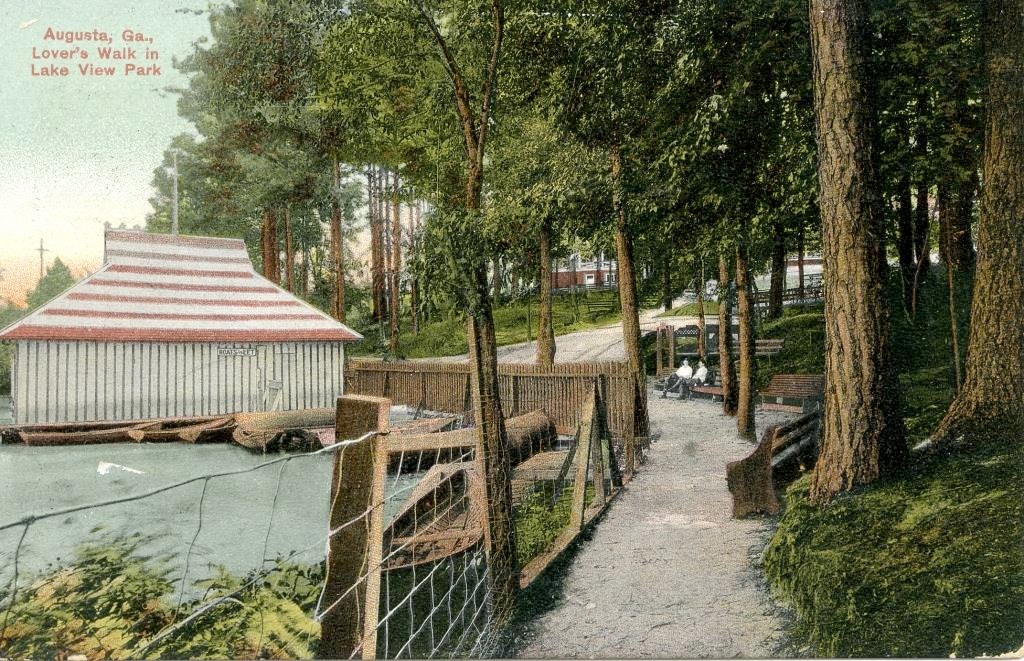The Augusta engineering department has begun a $6 million dollar dredging project at Lake Olmstead and other smaller bodies of water upstream.
Olmstead resident Brynn Allen says she was unaware of the dredging until large, loud trucks showed up and laid a pipe across her driveway.
“My fiancé and I have to park on our front lawn because the workers have to have access to the storm drain,” she says. “Those trucks are loud. We can hear them going until sometimes 10 o’clock at night.”
CLICK BELOW FOR VIDEO OF DREDGING
Allen and her neighbors will have to wait a while for the projection to reach completion; it is expected to be a year-long operation.
[adrotate banner=”19″]
Savannah Riverkeeper Executive Director Tonya Bonitatibus says while the process is long, it will solve several problems and will be worth it in the end.
“The silt erosion coming from upstream has left parts of the lake at only 3 to 5 feet deep,” Bonitatibus explains, “so, this time, they are dredging to make pretty much the entire lake 10 feet deep.”

The dredging should eliminate most of the red-green algae present in the water. That type of algae is dangerous to kayakers and especially their pets. It will also eliminate the small pools that are a breeding ground for mosquitoes that plague the area.
“Both the algae and the mosquitoes thrive in shallow water,” Bonitatibus explains, “and neither of them survive well in deep water.”
The lake has been dredged before, but Bonitatibus says the main culprit filling the lake up so quickly goes back to the Georgia Department of Transportation’s construction work at I-20/Bobby Jones and Walton Way Extension.
“The company doing the work didn’t follow the law, and the construction caused a huge amount of soil erosion, and that material eventually made its way to the lake,” Bonitatibus says. “The state of Georgia fined them $360,000, but that money went into the state’s general fund and none of it came back to Augusta.”
[adrotate banner=”13″]
The dredging project is being funded by SPLOST and storm water fees.

When the lake was created in 1872, it became a major recreation attraction for more than 100 years. For decades the lake was home to boat races and later water-skiing competitions.
At one point, the area known as Lakeview Park was home to an amusement park as well as a zoo.
In 1936, the city built the stone Julian Smith Casino, named after the Augusta mayor who served from 1923 – 1925.
However, over the past 30 years, recreation in the area has waned. Bonitatibus says she hopes the dredging will bring back recreation to the lake.
“Kayaking has exploded in recent years,” she says. “There are three companies that provide kayak rentals, and Lake Olmstead is the perfect place to put in a boat, but right now it is difficult because of the overgrowth.”
Allen says she is a kayak enthusiast and enjoys walking along the lake. She says if the dredging will get rid of the swarms of mosquitoes, she is willing to be patient with all the loud machinery.
“I’m not complaining, I know it’s a great thing,” she says, “but sometimes it can be a little frustrating.”
Scott Hudson is the Managing Editor of The Augusta Press. Reach him at scott@theaugustapress.com
[adrotate banner=”36″]











